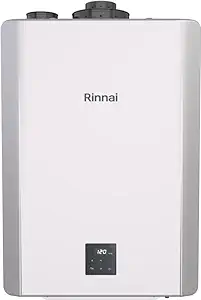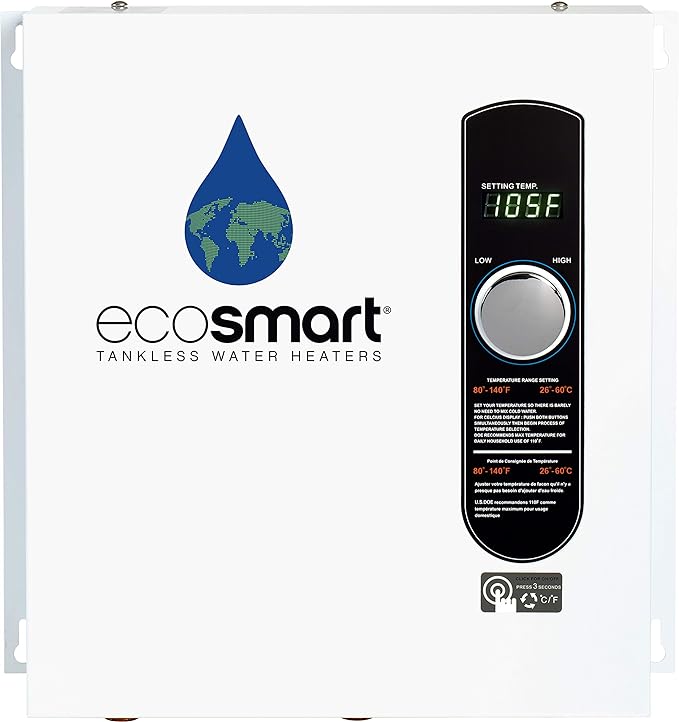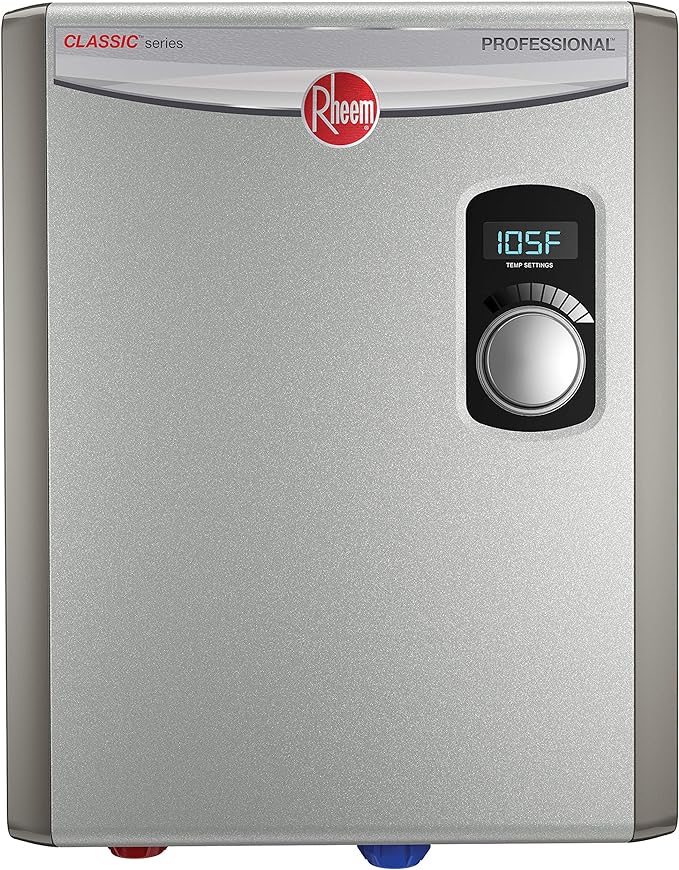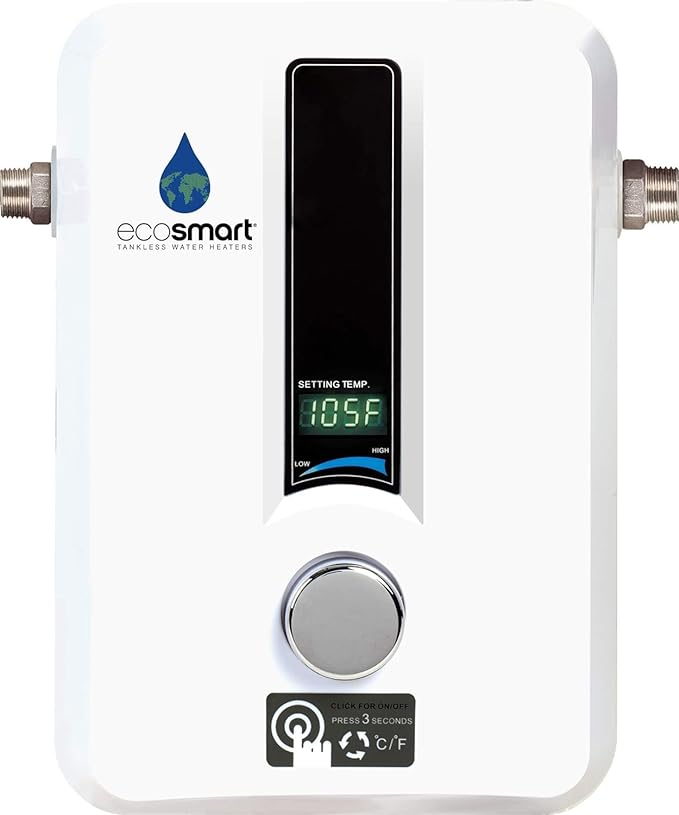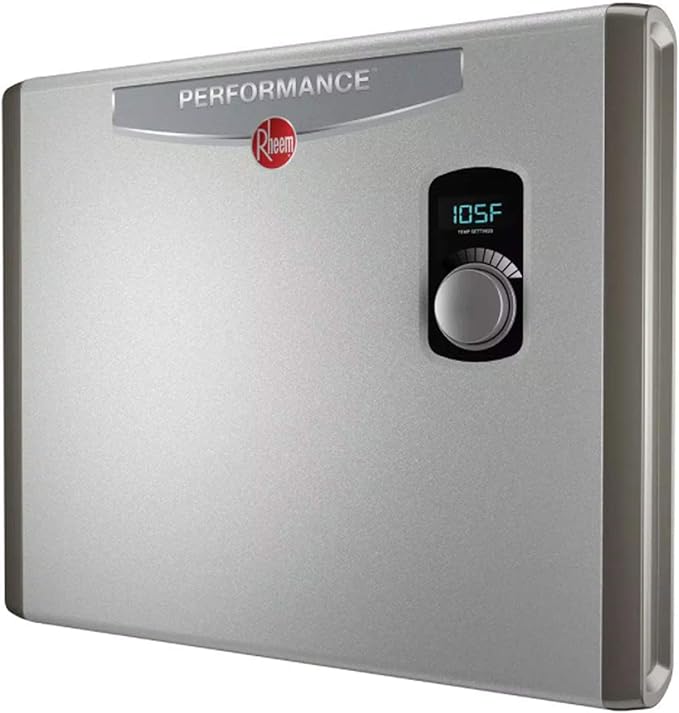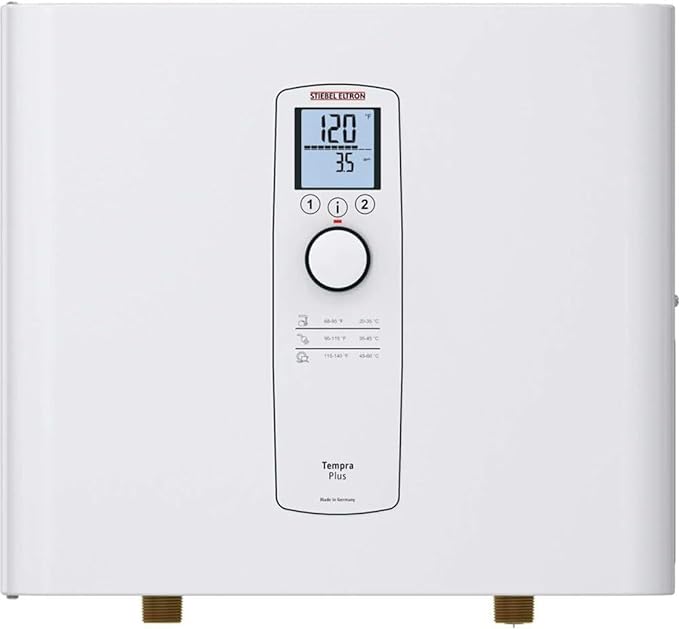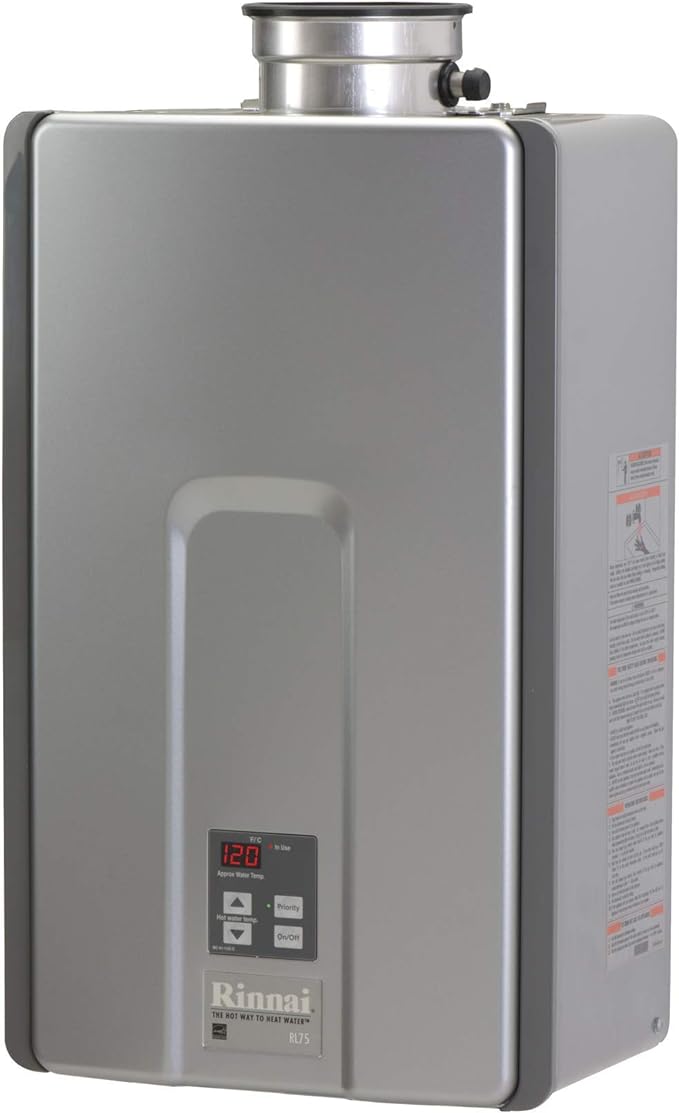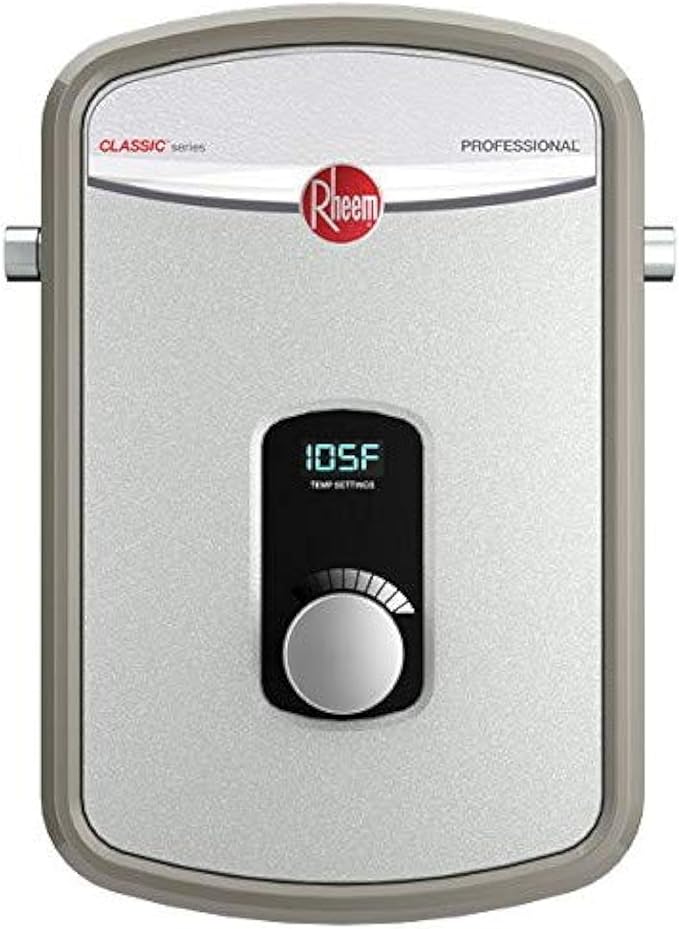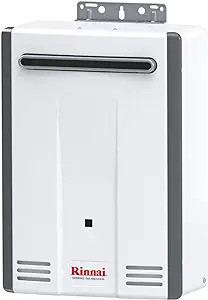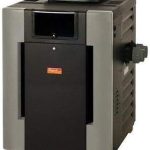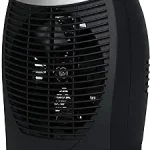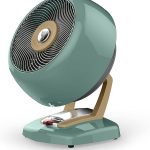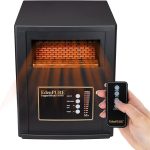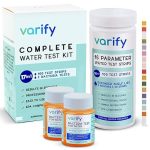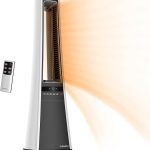As the ancient Greek myth of Tantalus reminds you, waiting for hot water can feel like an eternal torment. But what if you could have a constant supply of hot water at your fingertips? With the rise of tankless water heaters, that’s exactly what you can have. From brands like Rinnai, EcoSmart, and Rheem, these innovative devices promise endless hot water with impressive energy efficiency. But which one is right for you? With so many options available, you must know what sets each model apart. Let’s explore the top 9 tankless water heaters that will revolutionize your daily routine.
Contents
- Rinnai Condensing Smart Sense Tankless Water Heater
- EcoSmart ECO 27 Tankless Water Heater
- Rheem 18kW 240V Tankless Electric Water Heater, Gray
- EcoSmart Electric Tankless Water Heater
- Rheem RETEX-36 Electric Tankless Water Heater
- Stiebel Eltron Tankless Heater Tempra 36 Plus
- Rinnai RL75IN Tankless Hot Water Heater
- Rheem 240V Heating Chamber RTEX-13 Residential Tankless Water Heater, GRAY
- Rinnai Tankless Hot Water Heater
- Factors to Consider When Choosing Tankless Water Heaters
- Frequently Asked Questions
- Can Tankless Water Heaters Be Used With Well Water Systems?
- Do Tankless Water Heaters Require More Maintenance Than Traditional Heaters?
- Are Tankless Water Heaters Compatible With Septic Systems?
- Can I Install a Tankless Water Heater in an Outdoor Location?
- Do Tankless Water Heaters Work Well in Areas With Hard Water?
- Conclusion
Rinnai Condensing Smart Sense Tankless Water Heater
The Rinnai Condensing Smart Sense Tankless Water Heater is an excellent choice for those seeking a high-volume, energy-efficient tankless water heater.
This tankless water heater provides up to 11.1 GPM of hot water with an impressive energy efficiency factor of UEF .98.
This means you can enjoy a steady supply of hot water for multiple fixtures simultaneously, while also reducing your energy bills.
With its compact design, you can install it indoors or outdoors, and its Smart Sense gas control system allows for flexible fuel options – propane or natural gas.
You’ll also appreciate the easy-to-use interface and Quick Flush feature, which make maintenance a breeze.
Best For: Homeowners who need a high-volume tankless water heater that is energy-efficient and can provide hot water for multiple fixtures simultaneously.
Pros:
- Provides up to 11.1 GPM of hot water, making it suitable for large households or commercial use.
- Features an impressive energy efficiency factor of UEF .98, reducing energy waste and bills.
- Offers a compact design and flexible fuel options, allowing for indoor or outdoor installation with propane or natural gas.
Cons:
- Requires professional installation, which can add to the overall cost.
- Warranty coverage only includes parts, with labor costs not included, which can lead to additional expenses.
- The warranty repair process can be lengthy and frustrating, involving multiple plumber trips and diagnosis.
EcoSmart ECO 27 Tankless Water Heater
The EcoSmart ECO 27 Tankless Water Heater is the best choice for homeowners who want to substantially reduce their energy bills while enjoying a steady supply of hot water.
With its 99% thermal energy efficiency and ability to provide endless hot water, it is an ideal solution for those looking to reduce their energy consumption.
The self-modulating flow sensor technology regulates the energy required, ensuring you only use what you need.
The digital temperature display shows the outlet water temperature setting, giving you complete control.
This unit is compact, weighing only 11 pounds, and can be mounted on a wall, freeing up valuable space in your home.
With a flow rate of 2.7-6.5 gallons per minute, you’ll have a consistent supply of hot water whenever you need it.
Best For: Homeowners who want to reduce their energy bills and enjoy a steady supply of hot water.
Pros:
- Provides endless hot water with consistent temperature control
- 99% thermal energy efficient, reducing energy costs
- Compact and lightweight, weighing only 11 pounds, making it easy to install and freeing up valuable space
Cons:
- Requires professional installation and proper sizing for optimal performance
- May require additional equipment, such as a scale inhibitor, to maintain efficiency
- Warranty does not cover labor or incidental damages, only the cost of the heater
Rheem 18kW 240V Tankless Electric Water Heater, Gray
Opting for the Rheem 18kW 240V Tankless Electric Water Heater, Gray, proves to be a savvy decision for homeowners seeking a compact, energy-efficient solution that can supply a continuous flow of hot water for mid-range whole-home applications.
You’ll appreciate the self-modulation technology that adjusts power to meet hot water demand, ensuring you get the perfect temperature every time.
With its durable copper immersion heating elements and external digital thermostatic control, this tankless water heater is built to last.
Plus, its compact design and simple installation process make it a breeze to set up.
With a maximum flow rate of 4.4 GPM, you’ll enjoy a steady supply of hot water for your showers, sinks, and appliances.
Best For: Homeowners seeking a compact, energy-efficient tankless water heater for mid-range whole-home applications.
Pros:
- Saves space (90% smaller than traditional tanks) and energy, leading to significant cost savings
- Provides a continuous, endless supply of hot water with a maximum flow rate of 4.4 GPM
- Easy to install and maintain, with a simple installation process and field-serviceable heating elements
Cons:
- Some reviewers mentioned issues with the LED lights flickering
- Limited simultaneous shower use may be a drawback for larger households
- May not be suitable for very large households or high-demand applications
EcoSmart Electric Tankless Water Heater
You’ll appreciate the EcoSmart Electric Tankless Water Heater’s patented self-modulating technology, which guarantees consistent hot water when you need it, without ever running out, making it an ideal choice for homeowners seeking endless on-demand hot water.
This compact unit is 90% smaller than traditional tank heaters, making it perfect for those with limited space.
With its energy-efficient design, you’ll save money on your energy bills while enjoying a continuous flow of hot water.
The EcoSmart Electric Tankless Water Heater also features a convenient LED display and a maximum flow rate of 3.1 gallons per minute.
Plus, it’s backed by a lifetime warranty on electronics, exchanger, and element, giving you peace of mind with your purchase.
Best For: Homeowners who want an energy-efficient, compact, and reliable tankless water heater that provides endless on-demand hot water.
Pros:
- Energy-efficient design that saves money on energy bills
- Compact size (90% smaller than traditional tank heaters) makes it perfect for homes with limited space
- Lifetime warranty on electronics, exchanger, and element provides peace of mind with the purchase
Cons:
- Some customers have reported issues with warranty and documentation
- Installation requires a licensed electrician, which may add to the overall cost
- Some customers have mentioned difficulty with installation and documentation
Rheem RETEX-36 Electric Tankless Water Heater
If you’re seeking a reliable and efficient tankless water heater that can handle multiple simultaneous uses, the Rheem RETEX-36 Electric Tankless Water Heater is an excellent choice, offering a self-modulating 6 GPM capacity that heats water faster than traditional tank heaters.
With its sleek gray design, this indoor installation unit measures 21.62W x 18.25H and weighs 19 pounds, making it a compact addition to your home.
You’ll appreciate its energy efficiency, as it reduces waste and saves you money on your electric bill.
Plus, it’s tested and certified to look and work like new, ensuring a hassle-free experience.
With an impressive 5.0-star rating from 9 customer reviews, this tankless water heater is a solid investment for your home.
Best For: Homeowners who want a reliable and efficient tankless water heater that can handle multiple simultaneous uses and reduce their energy bills.
Pros:
- Heats water faster than traditional tank heaters, making it ideal for households with multiple simultaneous uses
- Reduces waste and saves money on electric bills due to its on-demand heating feature
- Compact and lightweight design makes it easy to install and maintain
Cons:
- Requires plumbing experience and knowledge of soldering and brazing for installation
- Needs regular maintenance, including descaling and flushing, to ensure optimal performance
- May not be suitable for areas with low water pressure or flow rates
Stiebel Eltron Tankless Heater Tempra 36 Plus
With its unlimited supply of hot water and sleek design that saves space, the Stiebel Eltron Tankless Heater Tempra 36 Plus is the best choice for homeowners who value convenience and efficiency in their daily lives.
You’ll appreciate the continuous hot water supply, which is activated by an electronic switch for virtually silent operation.
The unit’s copper sheathed heating element is housed in a copper cylinder, ensuring efficient heating.
You can trust the Tempra 36 Plus, which is backed by a 7-year leakage and 3-year parts complete warranty.
With its impressive technical specifications, certifications, and rave customer reviews, this tankless water heater is an excellent addition to any home.
Best For: Homeowners who value convenience, efficiency, and unlimited hot water supply in their daily lives.
Pros:
- Easy to install and setup
- Gets hot really fast
- Maintains temperature for as long as you need
Cons:
- May require professional installation
- Some users experienced issues with the unit
- No other cons mentioned in the customer reviews
Rinnai RL75IN Tankless Hot Water Heater
For homeowners seeking a reliable and efficient hot water solution, the Rinnai RL75IN Tankless Hot Water Heater stands out as a top choice, providing up to 7.5 gallons per minute of hot water and WiFi connectivity for added convenience.
You’ll appreciate the compact design, which is about the size of a small suitcase, making it perfect for indoor installation.
With its advanced technology, this non-condensing tankless hot water heater can handle up to 5 fixtures at once.
Plus, you’ll have peace of mind with the 12-, 5-, and 1-year residential guarantee and 5-, 5-, and 1-year commercial factory warranty.
Best For: Homeowners seeking a reliable and efficient hot water solution, particularly those with multiple bathrooms or high hot water demands.
Pros:
- Provides up to 7.5 gallons per minute of hot water, suitable for simultaneous use of multiple fixtures
- Compact design allows for easy indoor installation and space-saving convenience
- Advanced technology and WiFi connectivity offer added convenience and efficiency
Cons:
- Requires natural gas power source, which may not be available in all areas
- Non-condensing tankless hot water heater may have higher energy consumption compared to condensing models
- WiFi connectivity requires additional Rinnai Controlr module purchase
Rheem 240V Heating Chamber RTEX-13 Residential Tankless Water Heater, GRAY
The Rheem 240V Heating Chamber RTEX-13 Residential Tankless Water Heater, GRAY, is a highly efficient and versatile option that provides a consistent flow rate of up to 3.17 GPM, making it an excellent choice for small to medium-sized households.
This tankless water heater boasts an impressive 99.8% energy efficiency rating, which can help you save on your energy bills.
The external adjustable digital thermostatic control with LED display allows you to adjust the temperature in increments of 1°F, giving you precise control over your water temperature.
With a durable copper immersion two-heating element design and self-modulating power control, this heater is built to last and provide consistent performance.
The simple installation process and threaded design make it easy to replace and maintain.
Best For: Small to medium-sized households looking for a highly efficient and versatile tankless water heater.
Pros:
- Highly efficient with a 99.8% energy efficiency rating, which can help reduce energy bills
- Provides a consistent flow rate of up to 3.17 GPM, making it suitable for households with multiple simultaneous hot water uses
- Easy to install and maintain, with a threaded design and simple installation process
Cons:
- Requires a 240V line, which may need to be installed separately
- Has a limited capacity of 1.5 gallons, which may not be suitable for larger households
- May require regular maintenance, such as flushing the unit to remove deposit buildup
Rinnai Tankless Hot Water Heater
If you’re seeking a tankless water heater that can deliver a consistent 5.3 GPM of hot water flow, the Rinnai V53DeN Tankless Hot Water Heater is an excellent choice, especially for larger households where simultaneous hot water usage is common.
This outdoor installation unit is designed to provide endless hot water flow throughout your home, all while being compact and energy-efficient.
With its high-performance hot water flow rate, you’ll enjoy maximum water pressure for a powerful and constant stream.
Plus, its enhanced scale detection helps prevent long-term damage.
You’ll also appreciate the Wi-Fi monitoring capability with the Controlr module (not included).
Backed by a 10-year warranty for the heat exchanger, you can trust this unit to deliver reliable performance for years to come.
Best For: Larger households where simultaneous hot water usage is common and those seeking a compact and energy-efficient tankless water heater.
Pros:
- Compact and durable design with endless hot water flow throughout the house
- High-performance hot water flow rate up to 5.3 GPM with optimal water pressure for a powerful and constant stream
- Energy and space efficient with a 10-year warranty for the heat exchanger
Cons:
- Customer service and warranty claims can be an issue
- Wi-Fi monitoring module (Controlr) is not included
- Professional installation is recommended, which may add to the overall cost
Factors to Consider When Choosing Tankless Water Heaters
When selecting a tankless water heater, you’ll want to ponder several key factors to guarantee you get the right one for your needs.
You’ll need to think about your water flow rate needs, the energy efficiency ratings of different models, and the space and design constraints of your home.
Additionally, you’ll want to look into installation requirements and maintenance schedules to guarantee a smooth and hassle-free experience.
Water Flow Rate Needs
To determine the right tankless water heater for your home, calculate the total water flow rate needed to support your household’s simultaneous hot water uses. This is vital to provide a consistent and reliable supply of hot water.
A residential household typically requires 2-4 gallons per minute (GPM). However, if you have a larger household or multiple bathrooms, you may need a higher flow rate, with some tankless water heaters capable of providing up to 9.8 GPM or more.
When choosing a tankless water heater, consider the flow rate in relation to your household’s simultaneous hot water uses. If you don’t, you might end up with a lack of hot water, which can be frustrating.
The flow rate is affected by factors like water temperature rise, inlet water temperature, and the heater’s efficiency. So, selecting a model that can meet your specific needs is vital.
Proper sizing of the tankless water heater based on your household’s peak flow rate is key. By doing so, you’ll guarantee a consistent and reliable supply of hot water for your household.
Energy Efficiency Ratings
Your search for the perfect tankless water heater hinges on finding a model that balances performance with energy efficiency, and that’s where energy efficiency ratings come in.
When it comes to tankless water heaters, energy efficiency ratings are vital in determining how much energy is wasted during operation.
The Uniform Energy Factor (UEF) rating is the standard measure of energy efficiency for tankless water heaters. A higher UEF rating indicates a more energy-efficient model, with electric models ranging from 0.64 to 0.94 and gas models up to 0.82.
Look for a UEF rating of at least 0.82 for electric models and 0.80 for gas models to guarantee high energy efficiency.
Additionally, the ENERGY STAR certification is a helpful indicator of a tankless water heater’s energy efficiency, as it meets the U.S. Environmental Protection Agency’s energy efficiency guidelines.
Space and Design
You’ll need to examine the physical space where you plan to install your tankless water heater, as well as its design, to guarantee a seamless and efficient integration into your home’s plumbing system.
The compact size of tankless water heaters makes them ideal for small spaces, such as apartments or condos. However, you’ll still need to verify you have enough clearance around the unit for proper ventilation and maintenance access.
When it comes to design, you’ll want to ponder the aesthetic appeal of the unit, as well as its durability and build quality.
Look for units with a sleek and modern design that will fit in with your home’s décor. Additionally, weigh the material used in the unit’s construction, such as stainless steel or copper, which can impact its durability and resistance to corrosion.
Installation Requirements
When selecting a tankless water heater, be aware of the installation requirements, as improper installation can lead to safety issues, void the warranty, and result in additional costs.
It’s vital to hire a licensed plumber or electrician with experience in tankless water heater installations to guarantee a safe and proper setup.
The installation location should be well-ventilated, and the unit should be at least 3 feet away from any combustible materials.
You’ll also need to take into account the electrical and gas connections required for your tankless water heater. Electric models typically need a dedicated 240-volt electrical connection, while gas-powered units require a gas line connection.
Additionally, factor in the cost of new pipes, valves, and electrical connections that may be needed for the installation. These extra expenses can add up, so make sure to include them in your overall budget for the tankless water heater.
Maintenance Schedules
Proper installation is just the first step in guaranteeing your tankless water heater operates safely and efficiently; to maintain its performance and longevity, it’s equally important to establish a regular maintenance schedule.
You’ll want to descale your tankless water heater every 3-6 months, depending on your water’s hardness and your usage. Flushing the heater every 1-3 months will help remove sediment and debris, keeping it running smoothly.
Additionally, check and replace worn-out or damaged anodes every 1-2 years to prevent corrosion.
Annual professional maintenance is also a must, where a technician will inspect and clean the unit, performing any necessary repairs or replacements to prevent breakdowns and maintain warranty validity.
To stay on top of these tasks, keep a maintenance log to track servicing and confirm everything gets done on schedule.
Warranty Options
As you evaluate tankless water heater options, consider the warranty offered, which can vary substantially between manufacturers and models, with some providing extensive coverage for up to 20 years or more.
You’ll want to look for a warranty that covers parts and labor for a significant amount of time, ideally 10 years or more. Some manufacturers may offer extended warranty options, which can provide additional peace of mind.
When reviewing warranty options, pay attention to what’s covered and for how long. Check if the warranty covers the entire unit or just specific components, such as the heat exchanger or electronics.
Also, find out if the warranty is transferable if you sell your home. A thorough warranty can provide protection against costly repairs and replacements, saving you money in the long run.
Don’t assume all warranties are created equal – take the time to review the fine print and choose a tankless water heater with a warranty that meets your needs.
Frequently Asked Questions
Can Tankless Water Heaters Be Used With Well Water Systems?
You’re wondering if tankless water heaters can handle well water systems. Yes, you can use them together, but you’ll need to consider the water’s hardness, sediment, and potential corrosion risks to ensure a smooth operation.
Do Tankless Water Heaters Require More Maintenance Than Traditional Heaters?
You might wonder if tankless water heaters need more maintenance than traditional ones. The answer is yes, they do, since their complex systems require regular cleaning and filter replacements to prevent scaling and mineral buildup.
Are Tankless Water Heaters Compatible With Septic Systems?
You’re wondering if tankless water heaters can harmoniously coexist with septic systems. The answer is yes, but with caution – you’ll need to verify your septic system can handle the increased water flow and wastewater generation.
Can I Install a Tankless Water Heater in an Outdoor Location?
You’re wondering if you can install a tankless water heater outdoors. Yes, you can, but make certain it’s specifically designed for outdoor use and follow manufacturer’s instructions to protect it from the elements.
Do Tankless Water Heaters Work Well in Areas With Hard Water?
You’re wondering if tankless water heaters can handle hard water? Yes, they can, but you’ll need to descale them regularly to prevent mineral buildup, or consider a model with built-in water treatment features.
Conclusion
As you wrap up your search for the perfect tankless water heater, remember that the best one for you is out there, waiting to be ignited.
With top brands like Rinnai, EcoSmart, Rheem, and Stiebel Eltron offering a range of impressive models, the possibilities are endless.
By considering factors like energy efficiency, flow rate, and durability, you’ll soon be enjoying a warm and cozy shower, courtesy of your new tankless water heater.
The heat is on – make your move!
